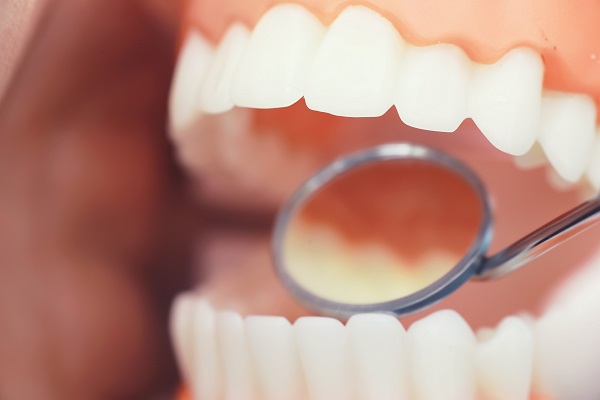How a Deep Dental Cleaning Is Performed

A deep dental cleaning is a way that dentists treat severe cases of gum disease. If your dentist detects signs of periodontitis, such as deep gum pockets and bone loss in the jaw, then they may recommend a cleaning to get the disease under control and so the patient can take the first step in recovering from the disease in the long term.
A review of deep dental cleaning to improve periodontal health
Every deep dental cleaning is different depending on the severity of the periodontal disease, how many quadrants are being cleaned and other factors. However, the most common steps include applying a numbing agent, scraping away the plaque and tartar beneath the gum line, smoothing the tooth roots and scheduling a follow-up visit.
Apply a numbing gel and local anesthetic
A deep dental cleaning involves cleaning down toward the root of a tooth, below the gum line. To ensure that the procedure does not cause much discomfort to the patient, the dentist first applies a numbing gel and local anesthetic. The local anesthetic does not have any notable risks, unless the patient is allergic, in which case an alternative solution may be used. During the procedure, the patient may feel the dental tools used, but it should not cause much discomfort.
Scrape away the plaque and tartar below the gum line
The first step in the procedure is to scrape away the plaque and tartar near the root of the tooth and along and beneath the gum line. This step in the process is known as “scaling.” Scaling is done with minimally invasive dental tools performed by hand by the dental professional. They will do one quadrant of the mouth at a time. There may be some slight discomfort, in which case the patient can notify the dental professional and they can provide more of the numbing agent if desired.
Smooth the tooth roots to allow the gums to reattach
The second step in the process is to smooth the tooth roots and allow the gums to reattach to the root of the tooth. This step is known as “root planing.” This is typically less invasive than the first step and should not cause any discomfort. Much like with scaling, the dental professional conducts root planing to one section of the mouth at a time.
Schedule a follow-up visit (if necessary)
Depending on the severity of the gum disease, the dentist may recommend a second or third procedure. This is sometimes necessary as they clean one section of the mouth at a time. They may clean one or two quadrants on the first visit and then schedule a second visit to clean the remaining quadrants.
Start the deep dental cleaning process with a consultation
The deep dental cleaning process begins with a consultation to allow the dentist to examine your periodontal health. Typically, only patients who have periodontitis require deep dental cleaning, so you may only need a routine dental cleaning. Regardless, we encourage you to reach out today to schedule a visit with our team.
Request an appointment here: https://www.yourhuntsvilledentist.com or call René A. Talbot, DDS at (256) 382-6690 for an appointment in our Huntsville office.
Check out what others are saying about our dental services on Yelp: Dental Cleaning and Examinations in Huntsville, AL.
Recent Posts
Wondering if a dental cleaning helps prevent gum disease? Preventive dentistry, including routine dental cleanings, is essential to having a healthy mouth because it helps patients avoid cavities, enamel wear, and gum disease. Therefore, regular dental cleanings are crucial to a dental patient's oral health.Signing up for a dental cleaning on a regular basis is…
A regular dental cleaning is vital for maintaining optimal oral health. While many people understand the importance of these appointments, the specifics of what happens during dental cleanings may remain a bit mysterious.In this review, we discuss the procedure of a typical dental cleaning, providing insight into the process and highlighting its significance in preventive…
Regular dental cleaning maintains or improves your oral health. For example, dentists include routine deep cleaning in long-term treatment plans for patients who live with gum disease. Dental cleaning is also important for smokers who have otherwise healthy teeth. This piece goes over the routine for dental cleaning.Dental practices prefer to offer first-line treatment rather…
A dental cleaning is a simple and non-invasive dental procedure in which plaque and tartar accumulation is scaled away and the teeth and gum line are thoroughly cleaned and polished. There are several notable benefits of this preventive dental procedure that patients should understand. The benefits of dental cleaning include the ability to brighten and clean…


